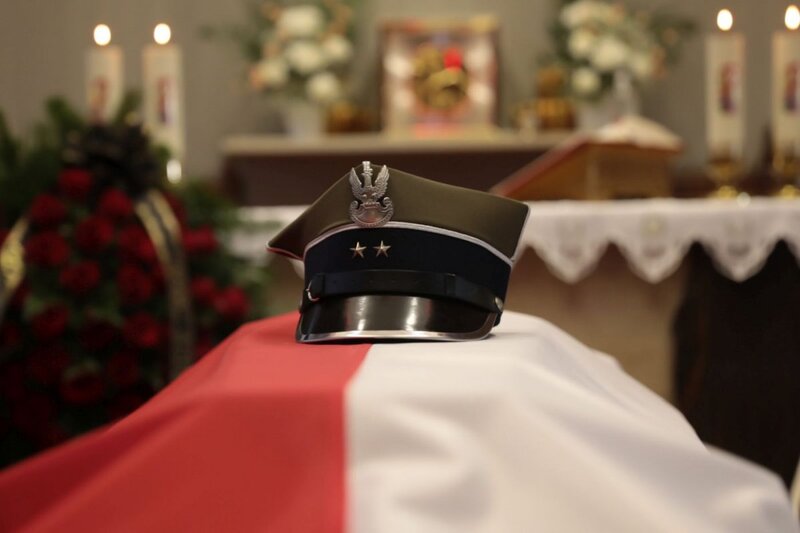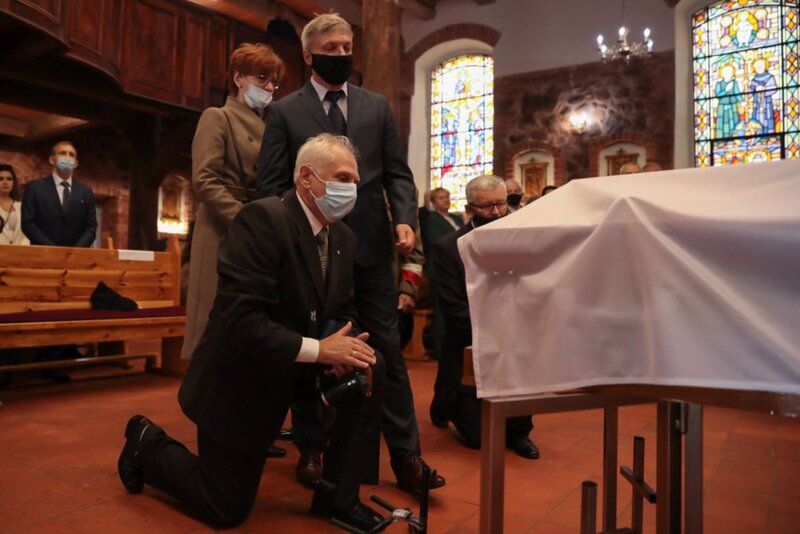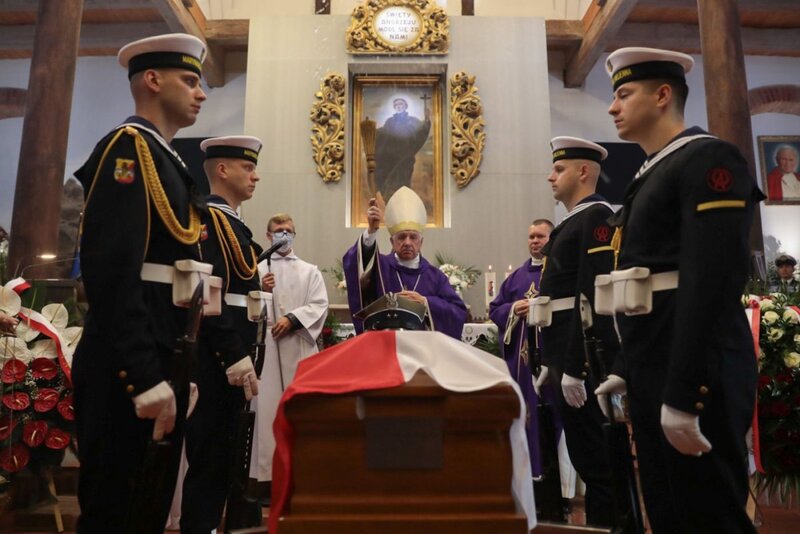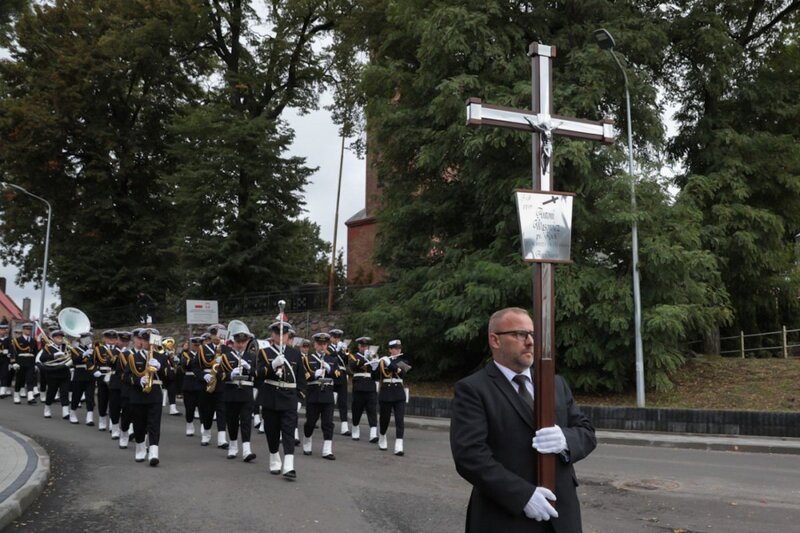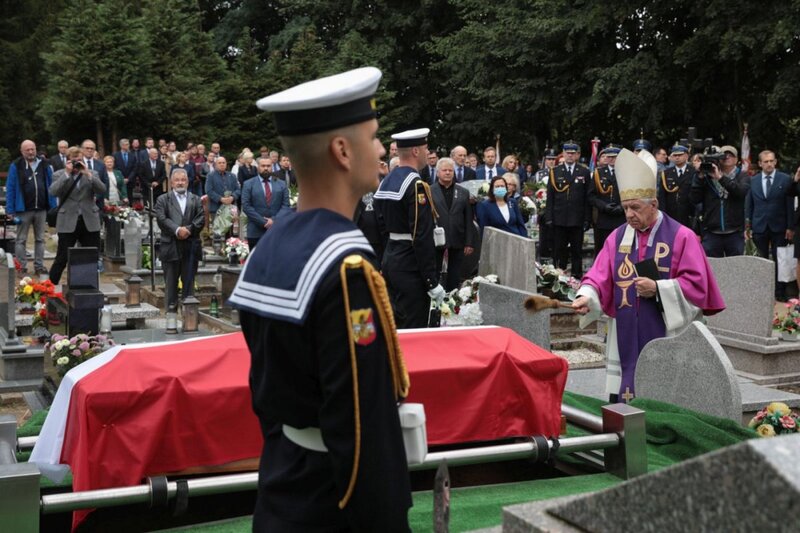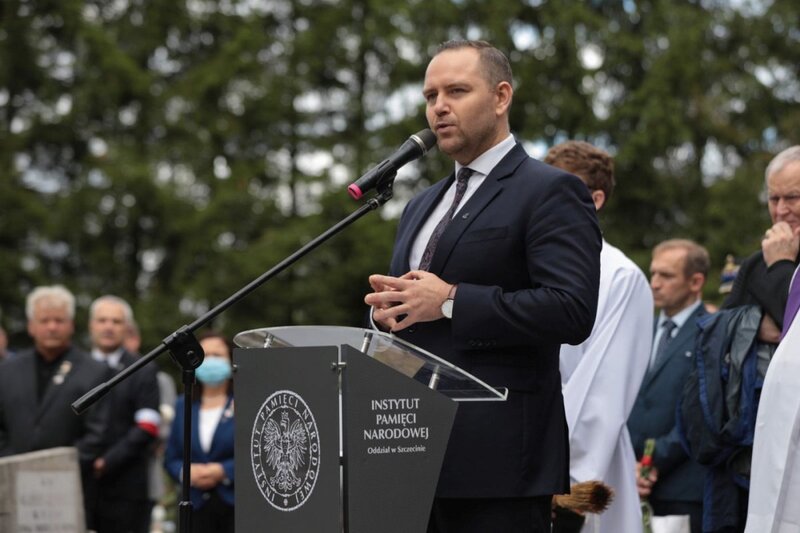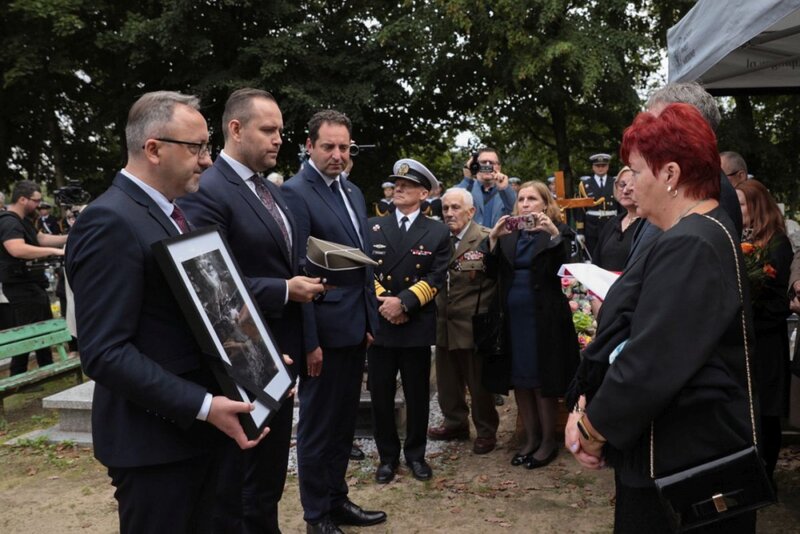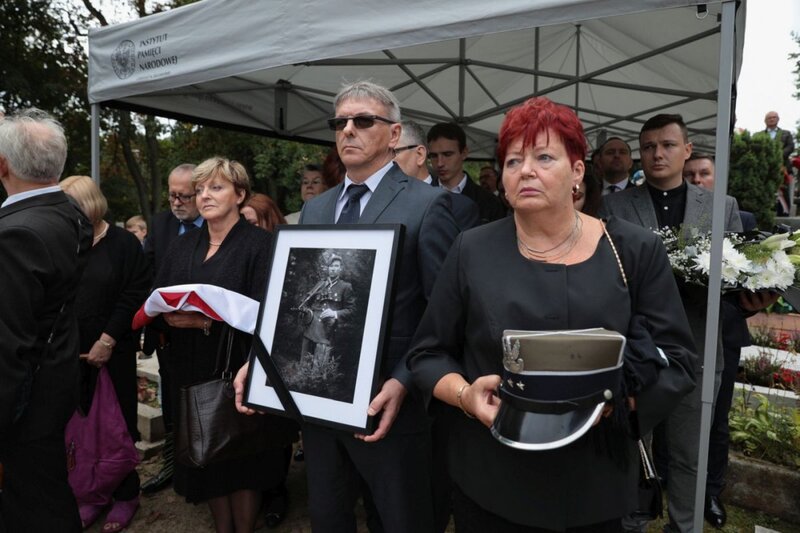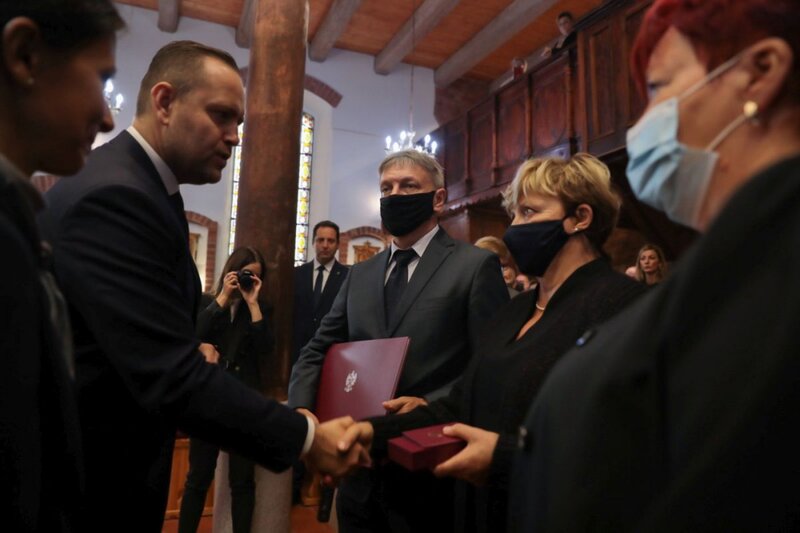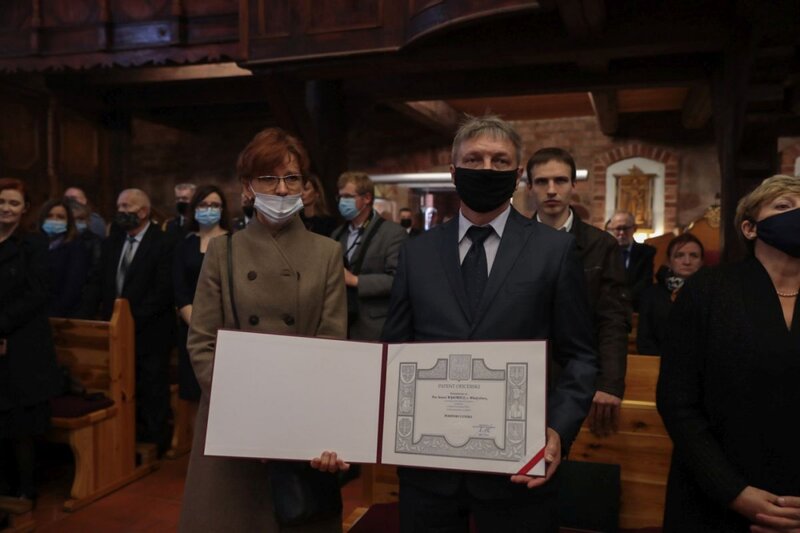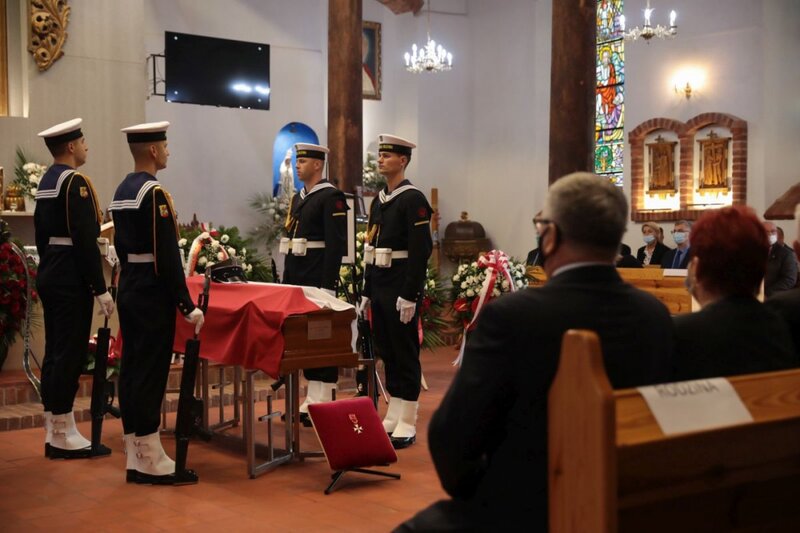The funeral of Sergeant Antoni Wąsowicz, alias "Roch" began at 10:00 with a Holy Mass at the St. Andrzej Bobola church in Golczewo. After the service, the funeral procession went to the municipal cemetery. The ceremony was attended by the President of the Institute of National Remembrance, Karol Nawrocki, Ph.D.
- Antoni Wąsowicz knew exactly how grateful we ought to be to the Red Army for Hitler's pact with Stalin, for the outbreak of World War II, for tens of thousands of Poles murdered and hundreds of thousands deported deep into the Soviet Union. (...) After 1945, Poland became a colony of the USSR. This is something he – a hero of our freedom - could not accept. For the love of Poland, he joined the ranks of the anti-communist pro- independence underground - emphasized Karol Nawrocki, Ph.D. during the ceremony.
During the ceremony, the President of the Institute of National Remembrance together with his Deputy Karol Polejowski, Ph.D.,D.Sc. and the Director of the IPN’s Szczecin branch, Paweł Skubisz, Ph.D. presented the family of Antoni Wąsowicz with a commemorative portrait of the deceased and an army cap.
Antoni Wąsowicz alias "Roch" (1922–1948)
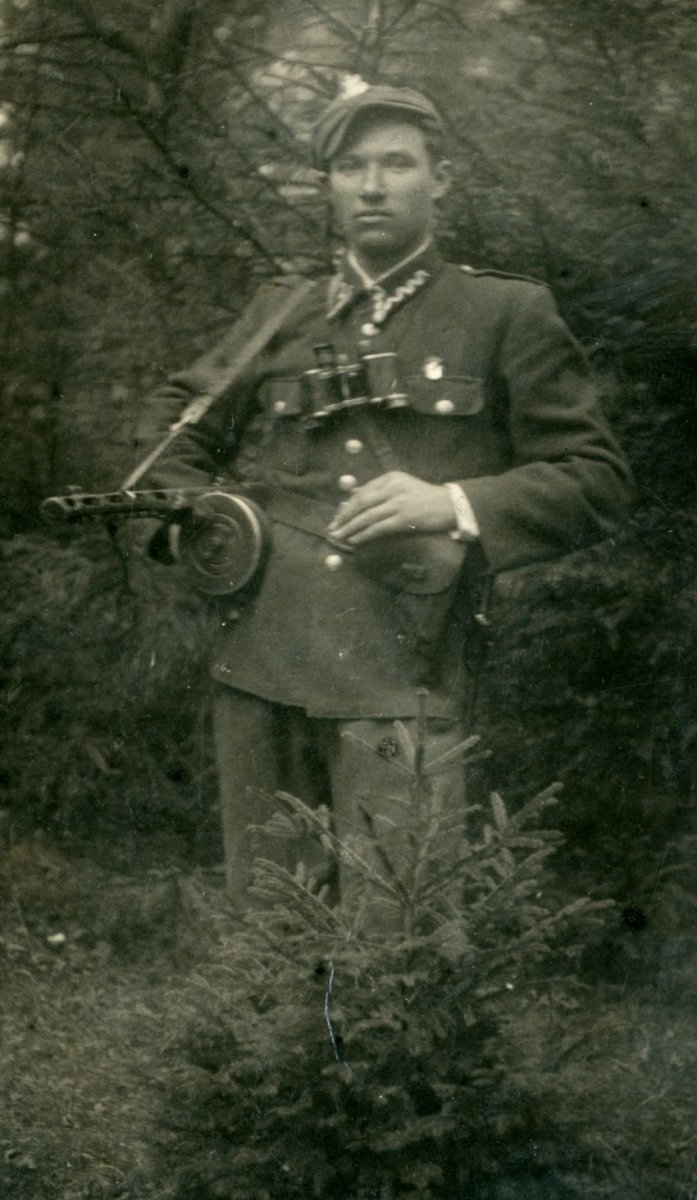
Antoni Wąsowiczwas born on 17 April 1922 in Aloks in the district of Święciany (Lithuania) as the son of Władysław and Weronika née Dejczko. Before the war, he completed seven years of elementary school and worked on a farm. His activity during Soviet and German occupation is not very well documented. He himself testified, however, that he had served in one of the partisan units of the Home Army.
After the Vilnius Region was re-occupied by the Red Army, he was drafted for military service and, after training, he was assigned to the 4th "Warsaw" provisioning regiment. On 25 May 1945, he deserted from the army and joined Władysław Tomczak "Zadora"’s pro-independence unit. He later established contact with an underground liaison from the Sądecczyzna area and through him, in March 1946, he joined the "Polish Army" partisan unit commanded by Władysław Janur "Wisła".
Wąsowicz also took part in actions against Security Services collaborators, communist activists and common criminals. In the summer of 1946, after the group was partially broken up, he joined Józef Kuraś "Ogień"’s unit along with Adam Domalik "Kowboy" and was promoted to the rank of sergeant. After the death of Henryk Głowiński "Groźny" in November 1946, he took command of this company.
"Roch" participated in all the most important activities of the group, such as expropriation actions, the liquidation of communists and their associates, and clashes with the Security Services. He also supervised the blowing up of the monument of gratitude to the Red Army in Rabka on 31 July 1946. He was an opponent of disclosure after the amnesty was announced in February 1947 and continued his underground activity also after the death of “Ogień”. In the spring of 1947, seeing no possibility of further partisan activity, he decided, together with two of his closest associates, to move to Austria, which was the American occupational zone at that time. The escape prepared in May 1947 was unsuccessful and all three of them were caught and deported to Poland.
On 18 December 1947, in accordance with the judgement of the Military Court in Cracow, Antoni Wąsowicz was sentenced to death. The sentence was carried out in the prison in Montelupich Street in Cracow on 24 February 1948. Antoni Wąsowicz's remains were secretly buried in the Rakowicki Cemetery, where they were discovered in October 2017.
